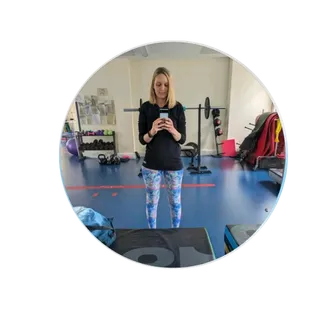Helping You Work With Your Brain, Not Against It
ADHD coaching for real life, whether you’re newly diagnosed, feeling overwhelmed, or just trying to hold it all together.
1:1 support, live group sessions, and practical tools that actually fit how your brain works.

Helping ADHD Minds Find Their Own Way
I’m Fraser, an ADHD coach, father, and former corporate leader who didn’t realise I had ADHD until I was 43.
Like many late-diagnosed adults, I spent years thinking I just wasn’t good enough. I pushed myself hard, burnt out often, and masked my struggles to keep up with a world that didn’t quite fit.
When I finally got diagnosed, everything changed. I stopped blaming myself and started building a life that worked for my brain. Now I help others do the same.
I work with adults who feel overwhelmed, newly diagnosed, or stuck, offering practical strategies, honest conversations, and a place where they don’t have to explain themselves.
Whether it’s 1-to-1 coaching or a structured group programme, the goal is always the same:
To help you feel understood, and to help you move forward.
Does any of this
SOUND FAMILIAR?
You always feel behind, even when you’re working flat out.
There’s a constant mental to-do list running in the background, and even small tasks feel like a mountain.
You’ve been called lazy, disorganised, or too sensitive.
But deep down, you know you’re trying harder than most people realise.
You procrastinate, overthink, and crash hard when you finally stop.
It’s not just time management — it’s emotional exhaustion, decision fatigue, and never feeling like you’re doing enough.
You’ve Googled ‘Do I have ADHD?’ more than once.
Maybe you’ve been diagnosed. Maybe not. But you know something isn’t working, and you’re ready for support that actually makes sense for your brain.

Our Mission
Helping ADHD Adults Feel Less Alone — and More in Control
Whether you're newly diagnosed or have been masking for years, our mission is simple:
Help you understand your brain, stop the spiral of shame, and build a life that actually fits.
How I Can Help
1:1 ADHD
Coaching
Get tailored support with practical tools, calm accountability, and a coach who gets how your brain works.
Perfect if you're ready for personalised help, but not sure where to start.
6-Week ADHD
Group Programme
Live coaching, structure, and a toolkit that actually fits your brain — all in a space where you realise you're not the only one.
Ideal if you want guidance and to hear from others like you.
Free ADHD
Strengths Report
Not ready for coaching? Start with a personalised analysis based on your ADHD traits — and see what’s actually working in your brain.
A zero-pressure way to get insight, hope, and clarity.
What others are saying

"Fraser is awesome"
Fraser is awesome and I enjoyed working with him. He taught me so much and in a way that makes sense to me. He's given me a new found confidence.


"My life changed forever"
He taught me so much and in a way that makes sense to me. He's given me a new found confidence.


"Life was SO hard"
Fraser helped me to turn the waltzers into teacups and calm the chaos, I'm still spinning and dizzy at times but now I get to enjoy the views around me!

Fraser & Cubic write a blog to help you with your ADHD if you aren't ready to reach out for help just yet.

How to Break the ADHD Shame Spiral You’re Stuck In

You know the moment. You forget a meeting. Say the wrong thing. Let the laundry (or inbox) pile up. Again. That one minor thing sets off a domino of bad feelings — and suddenly, you’re spiraling.
Welcome to the ADHD shame spiral. You’re not alone, and more importantly, you’re not broken.
What Is the ADHD Shame Spiral?
An ADHD shame spiral is what happens when a small slip-up, often caused by common ADHD symptoms like distractibility, forgetfulness, or emotional dysregulation, triggers a wave of feelings of shame and negative thoughts.
You miss one deadline, and suddenly your inner critic is yelling:
“I always screw things up.”
“Why can’t I be like everyone else?”
“I’m such a disappointment.”
This spiral isn’t just about the mistake. It’s about what the mistake represents to you. And if you’ve gone through life being told (or assuming) that your brain differences make you lazy, unreliable, or too much, that one minor mistake becomes a massive threat to your self-worth.
It’s not just emotional overreaction — it’s a kind of shame that runs deep. A form of rejection-sensitive dysphoria, and it’s one of the most painful parts of living with ADHD.
Why ADHD Brains Are More Vulnerable to Shame Spiraling
Here’s what makes this particularly tough for ADHD brains:
Executive function delays mean that emotional regulation, time management, and impulse control are more difficult.
The cycle of shame often starts young, when undiagnosed kids internalise negative messages like “You’re not trying hard enough” or “You’re being difficult.”
Over time, this leads to deeply ingrained feelings of worthlessness, low self-esteem, and imposter syndrome.
When we can’t trust our brain to show up the way we want it to, even a bad day can feel like a referendum on our character.
And the worst part? These spirals often go unnoticed by others. They look like procrastination. Moodiness. Social isolation. But inside, it can feel like drowning.

A Moment of Truth from Me
I’ve lived this more times than I want to admit. Before my ADHD diagnosis, I thought I was just bad at life. I’d get praised for high performance at work but come home to unopened mail, missed birthdays, and a head full of bad feelings.
I remember one night, collapsing on the floor because I forgot to reply to a friend about dinner. That wasn’t a dinner issue. That was the straw that broke the back of a decade-long shame loop.
I’ve said downright unkind things to myself that I wouldn’t say to anyone else. And every time I heard a word of judgment, even gentle or well-meaning, it confirmed what I secretly believed: I’m not enough.
That’s why I’m not writing this from a distance. I’m writing this because I get it. And if you’re reading this, maybe some part of you needs to know: You’re not the only one.
Warning Signs You’re Stuck in a Shame Spiral
Sometimes, we don’t even know we’re spiraling until it’s too late. Here are some early warning signs to watch for:
Replaying a minor thing in your head on loop
Feeling the urge to cancel plans or isolate
Reacting with irritation or numbness to perceived criticism
Telling yourself negative comments like "I always mess up"
Overworking in panic to make up for one error
If this sounds familiar, pause. Breathe. This is your cue to intervene with care — not self-punishment.
Common Shame Triggers for ADHD Adults
Everyone’s triggers are personal, but some are especially common in the ADHD community:
Forgetting something important, especially around a family member
Misjudging time (again) and being late
An emotional overreaction in a tough moment
Being misunderstood or dismissed in a meeting
Comparing yourself to others who seem to cope with ease
These may seem small from the outside, but when layered with a lifetime of chronic shame, they can ignite a full-blown spiral.
Breaking the Cycle: What Actually Helps
If you’re in the spiral now, or you’re trying to prepare for the next time it hits, here are the best ways to interrupt the pattern.
1. Name What’s Happening
Don’t let shame stay in the dark. Give it language:
“This is a shame spiral, not a truth.”
“My executive function is struggling. That doesn’t make me a failure.”
“I’m experiencing rejection-sensitive dysphoria, not being dramatic.”
Even saying these things out loud can reduce the emotional intensity.
2. Connect with a Trusted Person
Shame thrives in silence. If you can, reach out to a trusted friend, a coach, or even an ADHD podcast community. It’s not about fixing the problem — it’s about reminding your brain you’re not alone.
I’ve had community members tell me that hearing someone else say, “That happens to me too,” felt like a lifeline.
3. Build In Recovery Time
After a spiral, your body might feel depleted. Let yourself recover. Emotional regulation takes energy. Sometimes, the most ADHD-friendly thing you can do is rest.
Try:
A short walk
Breathwork
Music that grounds you
Journaling just one sentence
Give your nervous system a chance to reset.
4. Reframe Mistakes as Data
This one came from a coaching session I had recently:
"Every mistake gives you data. It’s not a definition of who you are."
If your shame spiral started because of something like missed time, a forgotten message, or a dropped task, try looking at it this way:
What was the trigger?
What support could help next time?
What didn’t happen? (Sometimes, the bad outcome we fear never materialises.)
This reframes the moment and puts you back in a place of choice.

Routine as Emotional Armour
Creating a consistent routine doesn’t mean building a rigid schedule. It means creating an environment that reduces chaos so you don’t have to rely on willpower or shame to stay on track.
Here’s what that might look like:
Planning your day the night before
Using visual timers or body doubling
Forgiving forgetfulness while using reminder tools
This isn’t about discipline — it’s about designing your life to be ADHD-compatible.
Healing Takes Time (and Compassion)
Breaking a shame spiraling habit doesn’t happen overnight. You’re undoing years of negative self-talk, feelings of guilt, and self-blame.
If all you do today is:
Notice you’re spiraling
Say one kind thing to yourself
Choose not to isolate
...that’s progress.
You’re not behind. You’re moving at your own pace. And that’s valid.
A Word on Mental Health Support
Sometimes, these spirals get so intense that they start affecting every part of your life. That’s not a sign of weakness — it’s a sign that you might need extra help.
Mental health professionals, ADHD-informed therapists, or coaching can offer the structure and reflection tools to help you stop spinning and start healing.
No shame in needing support help. Just strength in reaching for it.
Final Thought: You Are Not the Spiral
I want to leave you with this:
You are not broken. You’re not failing. You’re not a lost cause.
You’re a human with a beautifully complex brain, trying to navigate a world that wasn’t built for it. And you’re doing your best.
Next time you feel the spiral begin, try asking:
What would I say to someone I love, if they were feeling this way?
Can I borrow that same voice for myself?
You deserve care. You deserve space. And you deserve tools that work for your brain.
If you want more support, structure, or just someone who gets it — my ADHD coaching programme is open soon. We go deep into topics like this, with real tools and executive clients who’ve been through the same.
And we make space for real life, real brains, and real healing.
You’re not alone in this.
STILL NOT SURE?
Frequently Asked Questions
Do I need a formal ADHD diagnosis to join or get coaching?
Nope. Many people I work with are still figuring it out or self-identify based on lived experience. If you resonate with what you’ve read, you’re welcome here.
What’s the difference between 1:1 coaching and the group programme?
1:1 coaching gives you personalised support, we focus completely on your life, goals, and challenges.
The 6-week group programme gives you live guidance alongside others, so you hear real examples and realise you’re not the only one.
I’m not sure what I need yet. Where should I start?
That’s totally normal. The best starting point for most people is the free ADHD Strengths Report. It gives you insight without pressure, and from there, you can decide if coaching or the course feels right.
Is this like therapy?
No, coaching is future-focused and practical. I’m not a therapist, and I don’t work with severe mental health distress. But I do work with people who feel stuck, lost, overwhelmed, or unsure how to manage day-to-day life with ADHD. If we hit something therapy-related, I’ll help you find the right support.
What if I miss a live session in the group programme?
It happens! You'll still get the tools and resources from that week, and I’ll send a recap. This programme is built with ADHD in mind, so flexibility is baked in.
Can I do both the group and 1:1 coaching?
Absolutely. Many people start in the group to get foundational tools and then move into 1:1 for deeper support. Or vice versa. There’s no wrong order, just what works for you.
How much does it cost?
Group Programme: £200 for the full 6 weeks
1:1 Coaching: £100 per session
Free ADHD Strengths Report: £0 — it’s truly free, no catch
What if I’m not ready to commit yet?
That’s okay. Sign up for the free report, or drop me a message with your questions, follow me on social. No pressure. No guilt. Just support when you’re ready.
Reach Out, No Pressure, No Stress
Whether you're curious about coaching, unsure where to start, or just want to ask a question — I'm happy to hear from you. There's no pressure to sign up or commit. Just send a message and I’ll get back to you soon.
07904 711781

Follow Us
Follow Us
© Copyright 2025. Square Squirrel ADHD Coaching. Powered by The Growth Nest -
